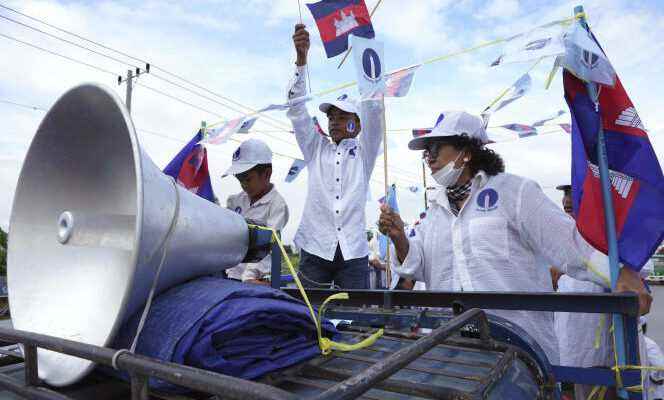A crowd of opponents dressed in white, waving flags and marching through the center of Phnom Penh without being worried by the police: the scene has not been seen in Cambodia for five years. The country, which is organizing its municipal elections on Sunday June 4, is timidly returning to a multiparty system, suspended in fact with the banning, in 2017, of the main opposition party, the National Rescue Party of Cambodia (PSNC). Prime Minister Hun Sen, who has reigned supreme since 1985, then brutally interrupted the democratic functioning of the kingdom, fearing that his Cambodian People’s Party (PPC) would be overtaken by its competitor in the 2018 legislative elections.
The campaign, of course, is taking place without the participation of the main historical opposition figures. Most, like their leader Sam Rainsy, live in exile, facing multiple politically motivated court convictions. Their passports having been cancelled, they were not allowed to return to their country, including to attend their own trial. Others, like Kem Sokha, are currently on trial for “treason” in a trial targeting 130 personalities, and are cautiously keeping their distance.
This did not prevent lesser opponents from resurrecting an opposition party, using the legal shell of a former political party created by Sam Rainsy, renaming it the “Candlelight Party” and retaining its old symbol, the candle. In a few months, it has become structured and established itself in the Cambodian landscape, to the point of managing to present candidates in almost all the municipalities of the country, including the most remote ones. He has also received the support of many opposition figures, such as the trade unionist Rong Chhun, released from prison in November 2021 after sixteen months of detention, or the monk and human rights activist But Buntenh, known for his activism on the social networks. social.
Low chance of success
But the chances of electoral success are weak for the opposition, deprived of its charismatic tribunes and which suffered numerous pressures and intimidation during the campaign. Above all, the opponents are divided as to the advisability of participating in these municipal elections, fearing to endorse a ballot deemed unfair. Seng Theary, an American-Cambodian human rights activist, one of the main defendants in the giant trial for “treason”, refuses to support the Candlelight Party. “Elections are used by repressive regimes not only to legitimize themselves, but also to last longer, she believes. They also allow them to obtain detailed information on the pockets of resistance in the country, then to fight them using the stick or the carrot. »
You have 19.28% of this article left to read. The following is for subscribers only.
